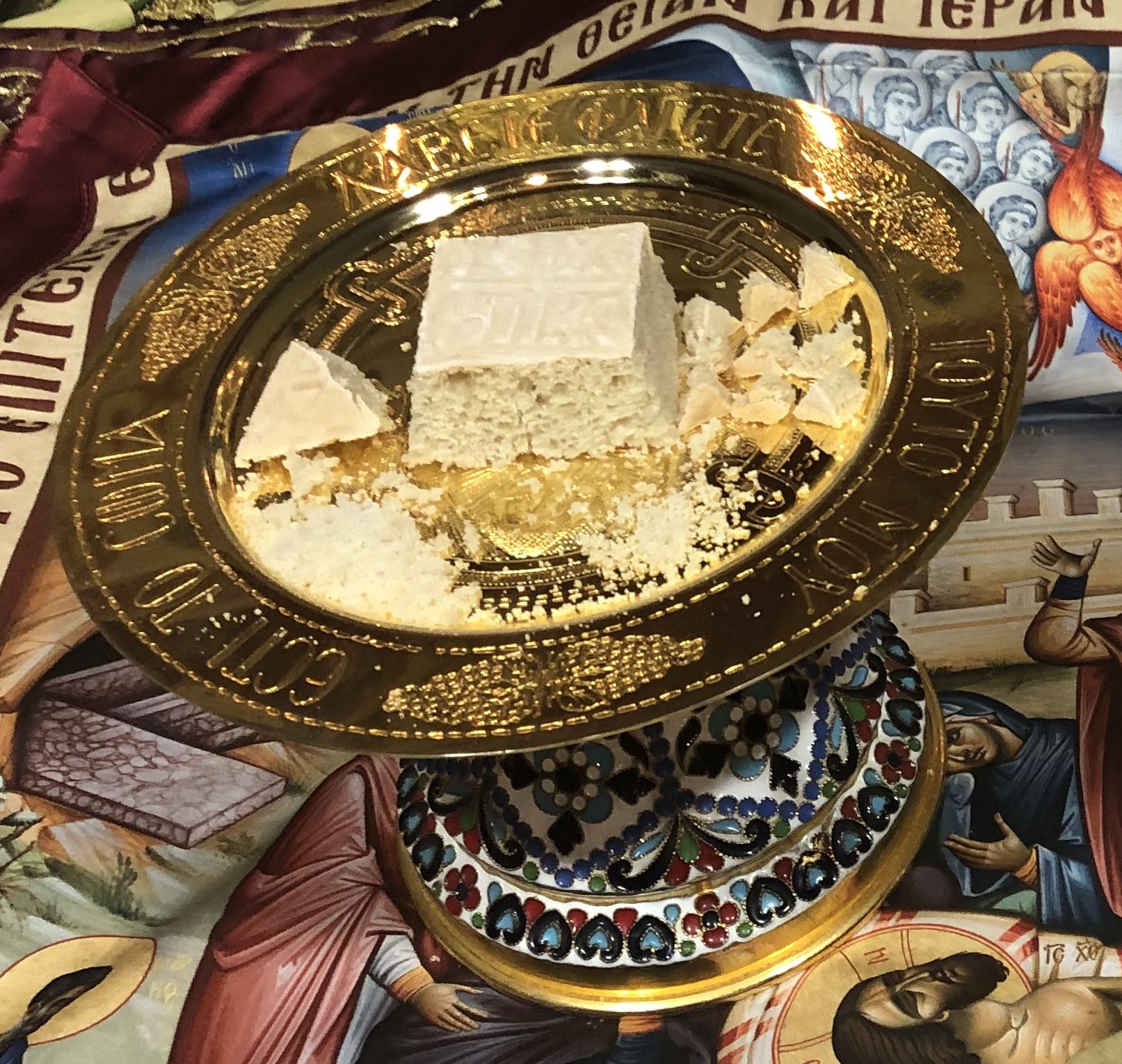Jesus said to her, “I AM the Resurrection and the life; he who believes in Me, though he die, yet shall he live, and whoever lives and believes in Me shall never die.
John 11:25-26
In contemporary times, celebrations of life seem to be replacing traditional funeral services. Many people think that funeral services, especially the way the Orthodox service is done with an open casket, are kind of morbid. Having been Orthodox my whole life and having served as a priest for many years, I’m not only used to our funeral service, but I have come to appreciate its nuances. I grant you that a funeral chanted all in Greek with a chanter who rushes through the service as if he’s got another appointment to get to is not very inspiring and I’ve experienced a few of these (thankfully not in my own parish, where our chanters have always been conscientious and sensitive at funerals). When done properly, with purposeful singing and thoughtful remarks by the priest, the funeral should be not only a time for reflection and grief but the hymns should be soothing to the soul, especially the hymn we are reflecting on today.
In offering the funeral service, we began with a plea to God for mercy, then sung several hymns of education, and now the tone of the funeral turns to blessings for the deceased and comfort for those who are left behind. After the “idiomela” hymns which primarily serve as educational hymns, we sing a hymn called the “Prokemenon,” which says Blessed ever be the way, the way on which you walk this day, for there is prepared for you a place of everlasting rest. (Servants and Sacraments, Book Three, by Reverend Spencer T. Kezios, Northridge, CA: Narthex Press, 1995, p. 21) Unfortunately I can’t sing this hymn for you through this writing, but if you ever hear this hymn sung well, it is a short but magnificent composition. Our choir has sung an arrangement of this at funerals and it is calming, and one can actually almost “get lost” in this hymn and feel not only a temporary reprieve from sorrow, but almost as if they were on the road to Paradise.
It is important to “celebrate” the life of the deceased. Photo collections, stories, memories, inside jokes, these are things that continually bring to our minds why someone was important in our lives. There is nothing wrong with remembering people and celebrating them. The funeral service should also serve as a celebration of eternal life, the fact that there is life after death, and the hope that our loved one will participate eternally in God’s glory. Indeed, when we have confidence in this hope, we can truthfully sing that the way on which the deceased is walking on the day of their funeral is blessed.
The verse that precedes this reflection comes from the Gospel account of the raising of Lazarus in John 11. We’ve already discussed how sad Jesus was that His friend died. Mary, her sister Martha, and their brother Lazarus, were friends of Jesus. He would stop by their home often. And so this visit was undoubtedly sad, and perhaps even a tad uncomfortable. It is very possible that Mary and Martha might have been disappointed that their miracle-working friend Jesus did not stop Lazarus from dying. Martha even says that in John 11:21-22 when she says to Jesus “Lord, if You had been here, my brother would not have died. And even now I know that whatever You ask from God, God will give You.” Indeed, Martha shows faith when she calls Jesus “Lord,” and shows confidence when she says that “even now” something good can happen. Jesus comforts her with the thought “Your brother will rise again.” (v. 23) Martha answers “I know that he will rise again in the resurrection at the last day.” (v. 24) And then Jesus changes the entire tenor of the conversation, as He says to Martha “I AM the Resurrection and the life; he who believes in Me, though he die, yet shall he live, and whoever lives and believes in Me shall never die.” (v. 25-26) Jesus tells her that the resurrection is not just a far off hope, but He is the Resurrection and the life, and that those who live and believe (both are necessary) in Jesus will never die, meaning, they will never be separated from the love of God, even in physical death.
Jesus then asks Martha “do you believe this?” (11:26) And then Martha, previously chastised for being “anxious and troubled about many things,” (Luke 10:41) makes not only a confession of faith, but does so in a great act of courage, because of the presence of so many Jewish authorities who were hostile to Jesus. She says “Yes, Lord; I believe that You are the Christ, the Son of God, He who is coming into the world.” (John 11:27)
The tenor of the funeral service changes with this hymn “Blessed ever be the way.” Up to this point, we’ve been praying for God to pity and be merciful, to forgive and extend grace, and we’ve learned a lot about death, dying and forgiveness through the hymns. Now this hymn seems to “rise” from the rest in a tone of empowerment, of joy, even exaltation. When Martha was speaking to Jesus, Lazarus was still dead. In fact, it was after this conversation that Jesus wept. Imagine, however, that for a moment both forgot their grief, Jesus saying that He is the Resurrection and Martha confessing Jesus to be the Christ. Indeed, that conversation was blessed, just like the way on which the deceased person passes is blessed, because now they have the opportunity to be empowered with joy greater than any joy they would have felt on earth. It is very normal to grieve the loss of a loved one. However, as Christians who believe in eternal life, the passing of a loved one should also evoke feelings of joy, that they have entered into everlasting rest, with the Lord.
Princes persecute me without cause, but my heart stands in awe of Thy words. I rejoice at Thy word like one who finds great spoil. I hate and abhor falsehood, but I love Thy law. Seven times a day I praise Thee for Thy righteous ordinances. Great peace have those who love Thy law; nothing can make them stumble. I hope for Thy salvation, O Lord, and I do Thy commandments. My soul keeps Thy testimonies; I love them exceedingly. I keep Thy precepts and testimonies, for all my ways are before Thee. Psalm 119:161-168
While many fear the “road” of death, the Church speaks to that way as a blessed one, because it leads to everlasting rest in the Kingdom of heaven.

